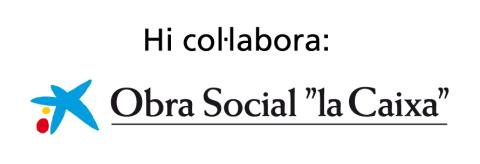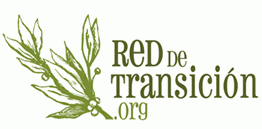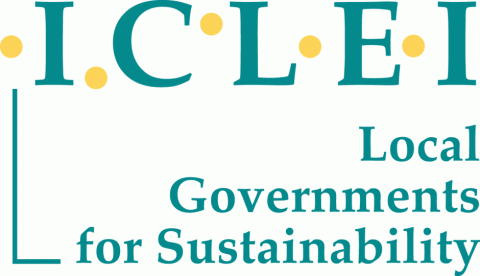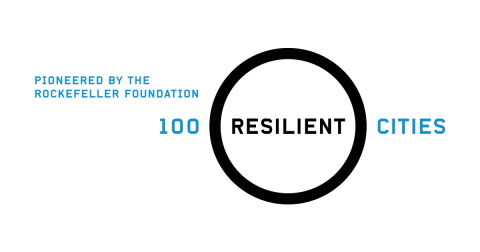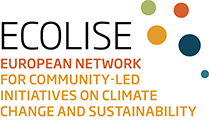Master's Degree in Urban Resilience for Sustainability Transitions
About the master's degree
This master's degree is an innovative, international and multidisciplinary education programme that teaches students how to operationalise the most urgent calls for building more resilient and sustainable cities through urban planning and design, and how to frame adequate policies and governance models. This one-year programme provides the most up-to-date perspectives, methods and tools for dealing with the threat of climate change, natural disasters and the social and technical transformations required to minimise the environmental impact of the current global urbanisation trends, while addressing social justice.
Visit the master's degree webpage and blog to find out more about the classes and content of the programme.
We are currently working on a new improved curriculum that we will be sharing very soon.
Reasons to study this master's degree
- International professors and a global multidisciplinary perspective: This master's degree has been framed and supported by the International Urban Resilience Research Network, and the programme is taught by professors from some of the most prestigious universities and research centres dealing with urban resilience in different parts of the world. The programme's global and multidisciplinary perspective (it addresses the environmental, social, economic, planning and political aspects of urban studies) enables students to learn about and understand resilience challenges on an international, national and local city level, thanks to the dense network of research and teaching partners involved in this master's degree.
- Wide range of job opportunities: The programme is supported by the most prestigious foundations, networks and agencies dealing nowadays with city and community resilience. It includes a mandatory job placement period, which provides students the connections and work experience needed to ensure a successful and international career. A long list of cities from different continents have also pledged their support to the master's programme in the form of job placement opportunities in their city resilience units.
- Bridging research and practical experience with an innovative educational model: In this master's programme, students will bridge science and policy through workshops and active involvement in panel-like classes, fostering different points of view and constantly re-framing the business-as-usual strategies often seen in the creation and management of resilient cities.
Partners
Presentation
In a world increasingly threatened by complex and rapid urbanisation and environmental, climatic and socio-economic change, this programme was created to meet the city practitioners' need to better understand and frame integrated strategies when implementing urban resilience policies and projects. At the same time, resilience is being addressed by different disciplines and from a wide range of perspectives, which sometime conflict in their meanings, approaches and methods, leading to a fragmented and confused framing of urban resilience. This master's programme provides the necessary interdisciplinary bridges, linking an integrated perspective on urban resilience to the management tools needed to design and implement city resilience.
Overview, objective and structure
The Master's Degree in Urban Resilience for Sustainability Transitions is a one-year, full-time master's programme developed and coordinated by the International Urban Resilience Research Network and hosted by UIC Barcelona. Its title reflects the need to go beyond the "building resilient cities" paradigm, taking resilience as a process expressed through a set of capacities and emotional responses to a range of impacts; one that cannot be just "built or designed", but must be managed.
The aim of this master's degree is to provide students multiple perspectives and the multidisciplinary skills, tools and knowledge future city resilience officers require.
The programme is divided into 3 main blocks: on-site classes, a research project and work experience. The first part of the course follows a logical sequence that starts with theoretical aspects of resilience and urbanisation processes. The next four modules explore and integrate different views on resilience, related to i) the built environment and infrastructures; ii) nature and urban ecosystems; iii) economic and city services resilience; and iv) community resilience. The final and most extensive module uses a set of international case studies and workshops (on governance models, leadership and tools for managing resilience) to explore the challenges of implementation. As the course moves forward, Barcelona will be used as a case study due to its experience in resilience, and students will have the opportunity to take part in a workshop with the Barcelona Urban Resilience Lab.
Through these workshops, students will be linked to organisations, institutes and city resilience offices worldwide, giving them the opportunity to apply their learning and skills through job placement opportunities, supporting their career and city resilience strategies for a more sustainable urban future.
Prospective students
This programme is intended for university graduates from the following areas of urban studies:
- Urban and Regional Planning
- Urban Design
- Geography
- Social and Political Sciences
- Engineering
- Landscape and Environmental Design and Management
- Regional Economy, Ecology.
Admission calls
Application Process Deadlines for 2024-2025
Second admission call (CLOSED):
- Deadline to submit documents: February 23, 2024
- Interviews with shortlisted candidates: March 4 to 7, 2024
- Results communication: March 8, 2024
- Deadline to reserve place: March 22, 2024
Third admission call:
- Deadline to submit documents: 3rd May, 2024
- Interviews with shortlisted candidates: May 6 to 9, 2024
- Results communication: May 13, 2024
- Deadline to reserve place: May 27, 2024
*Following each step, the applicants will be notified if they have been:
a) Accepted: You will receive your acceptance letter along with instructions on how to pay the deposit and reserve a place. Acceptance will only be confirmed upon payment.
b) Placed on a waiting list: Your application will be reviewed again during the next call.
c) Not accepted
Documents submission must be complete in order to include the applicant in each admission call. If some documents are missing, your application will be kept until completed and reviewed during the next admission call.
Prerequisites & admissions
Who can apply?
This programme is intended for city practitioners and consultants with at least 2 years of work experience in fields related to sustainability and resilience, as well as university graduates from the following fields: Planning, Management, Urban Design, Engineering, Environmental and Social Sciences, Political Science, Geography and Architecture.
Required level of education: Graduate Degree or Bachelor’s Degree
How to apply
- Register online
- Upload the following documents to the admission’s portal:
- Photocopy of your passport
- 1 passport-size photo
- Certified* copy of your Diploma**
- Certified* copy of your Academic Transcript
- A signed copy of the UIC Barcelona general conditions (download the form from the admission’s portal)
- A signed copy of the UIC Barcelona data protection form (download the form from the admission’s portal)
- A filled in and signed copy of the grant survey referring to any external grants/financial aid for which you may have applied (download the form from the admission’s portal)
- Motivation letter (in English; please include your Skype username in your signature)
- CV (in English)
Optional:
- Portfolio (in English and pdf format; content and length up to the student)
- Certificate of English language level (minimum B2)
- Recommendation letters
- Other certificates, diplomas or proof of work experience
* Document must have an official stamp from your university
** If you do not yet have your Diploma, please submit the proof of payment of the diploma issuance fees or a document from your university certifying your expected date of graduation.
Accommodation and visas
Students are responsible for finding accommodation and acquiring visas.
Grants & financial aid
Grants
The University does not provide grants/scholarships for master’s or postgraduate degree students. Those seeking financial aid are advised to consult other organisations.
Financial aid
UIC Barcelona holds collaborative agreements with various banking institutions to facilitate course financing with preferential conditions. Please check the terms and conditions for the current academic year in the following document:
Discounts
Members of the UIC Alumni and Friends Association are entitled to a 10% discount.
Additionally, certain collectives may be entitled to special discounts for certain programmes, which are specified in each case.

